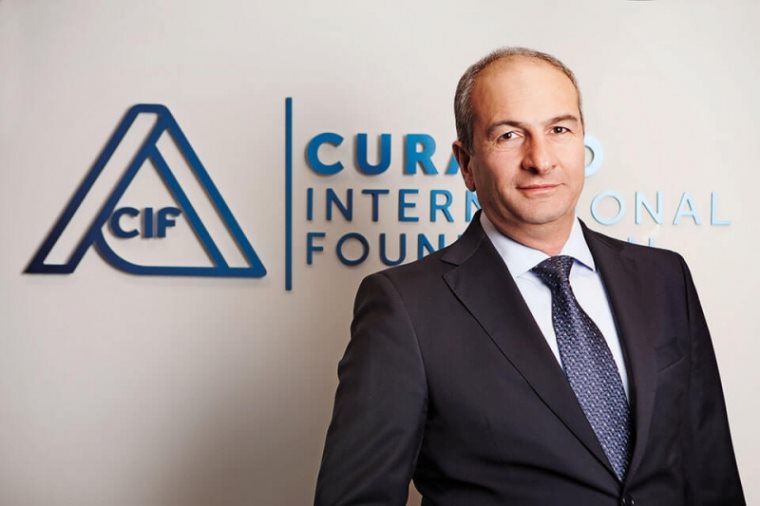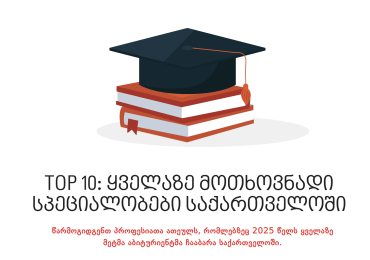Evidence matters – this is the credo of Dr. George Gotsadze, Director of Curatio International Foundation (CIF), a Tbilisi-based non-governmental research institution, and the Executive Director of Health Systems Global (HSG). Dr. Gotsadze respects evidence-informed policymaking and has been doing a great job with his team in researching healthcare systems globally, and providing evidence-based policy advice to policymakers in various countries. CIF numbers speak for themselves: over the past two decades 130 projects have been implemented, more than 50 scientific articles written, and more than 200 studies undertaken, and these figures are constantly growing.
The world is undergoing major demographic as well as epidemiological transitions. We’re seeing changing disease patterns from the northern to southern hemispheres, as well as an increasingly aging population, which will pose future challenges. Advances in science and gains in life expectancy throughout the world will mean a significantly higher demand on the global economy to deal with the health issues of our planet. All of this will trigger economic challenges and will demand new thinking, innovations, and approaches,” explained Dr. Gotsadze – in an interview with Forbes back in 2013, without knowing that two years later he would become the Executive Director of Health Systems Global (HSG), which in March 2015 moved its secretariat from Copenhagen to Tbilisi, Georgia.
HSG is the first international membership organization promoting health systems research and related knowledge translation. It brings together researchers, policy-makers, funders, implementers, civil society and other stakeholders from all over the world. Around 1,900 members of the society work together to create, share and apply the knowledge necessary for strengthening health systems globally.
From demographic to epidemiological transitions; from the increasingly aging population to advances in science, and gains in life expectancy; from infectious disease outbreaks and violence to hidden epidemics of mental illness and malnutrition; from rapid urbanization to changing disease patterns – these are global, national and local trends that health systems around the world inevitably confront. This means that health systems must be resilient in being able to absorb the shocks and sustain the health gains already achieved, or face the major risk of having decades of investment wiped out. At the same time, health systems are incubators of innovation, which is both an invaluable asset for making people live longer and a huge challenge, since healthcare becomes very expensive. So, only thorough research can evaluate and create new ways in which health systems can better respond to people’s emerging health needs and more effectively solve the healthcare dilemmas directly affecting their lives.
All these aspects came together at the Fourth Global Symposium in Vancouver, Canada, in one main theme –“Resilient and Responsive Health Systems for a Changing World.” These aspects touched upon such directions as resilience: absorbing shocks and sustaining gains; responsiveness: anticipating change, respecting rights and engaging in politics, and health systems as incubators of innovation. The symposium was attended by more than 2,000 specialists from around the world. This symposium was the fourth of its kind for Health Systems Global after Montreux 2010, Beijing 2012, Cape Town 2014, and the first of its kind for the Curatio International Foundation (CIF) team and its leader, Executive Director of HSG, Dr. George Gotsadze.
It’s now 2017, so Forbes Georgia asked Dr. Gotsadze if anything has changed in global health since 2013, when he last spoke with Forbes.
He says that three main challenges can still be identified.
First is technological inflation or technological progress: “It is fantastic that each technological achievement defeats more and more diseases and prolongs more and more lives. But on the other hand, this can be viewed as a challenge, because it drives prices up for healthcare – especially for developing countries where economies are remaining weak and the penetration of new technologies in these markets is high.”
Second, it is the change in demographic structure across the world: “This is in direct relation with the first challenge, since technological achievements prolong lives, which on the other hand means that the need and demand for health services is constantly growing. This in turn means that responding to these needs will demand more and more resources from the world’s economies.”
And third, it’s all about political ambitions: “Many countries – and especially developing countries – face the challenge of providing universal healthcare coverage to all or to a sizable segment of the population. But because healthcare is constantly becoming more and more expensive, questions arise regarding whether or not economies can bare these costs effectively,” he notes.
Georgia is among these countries. Gotsadze says the main challenge for his country is to carefully balance populist political ambitions on the one hand, and the current economic reality of relatively slow growth and a relatively weak resource base the country faces on the other hand. He says that we all have to tend to our priorities more effectively and meet the goals of universal healthcare with minimal losses and greater efficiency.
“The measurement and evaluation of investment outcomes are one of the main pillars of the 21st century global health landscape,” Gotsadze said in his interview with Forbes Georgia. Since 1996, Gotsadze has been the author of more than 40 publications, including peer-reviewed articles and book chapters, and now manages a portfolio of programs being implemented in several countries, bringing more than 25 years of experience in health policy and health systems to CIF.
Gotsadze strongly believes that timely evidence for policymaking helps advance health systems on a national, sub-national and global level. Since its establishment in 1994, CIF has been guarding this belief for Georgia’s healthcare sector. Most recently in 2012, they established the Health Care Barometer – a routine opinion poll of health sector experts/managers/policymakers. Every six months this barometer evaluates changes in the healthcare systems of the country, reflecting their positive and negative attitudes and expectations towards the changes taking place.
“The aim of the barometer is not to provide robust/factual evidence, but to reflect on expert feedback in order to raise green, yellow and red flags around specific aspects of the health system and trigger timely, effective and better policy response, where it’s needed and in a timely manner,” he explains. The timeline of CIF’s contribution to healthcare policymaking in Georgia also portrays how the organization had guarded this belief for over 20 years.
—————————
1994 – CIF started as small non-governmental organization with the goal of supporting healthcare system reforms in transition economies, and to assist Georgia and other countries in shaping effective healthcare systems in the post- Soviet era.
1996 – CIF carried out an assessment on the country’s existing hospital infrastructure, which provided the basis for the hospital restructuring plan initially started in 1998, and eventually implemented as part of the government’s ‘100 New Hospitals Project’ from2006 – 2010.
2000 – CIF contributed to a primary healthcare reform development, which led to a family and community-based medicine model for primary healthcare.
Since 2001, CIF has continuously provided evidence and the necessary inputs to shape and strengthen national disease surveillance systems, including those focused on infectious diseases and outbreaks arising from human and animal infection. The organization also helps enhance national bio-safety and bio-security by contributing to the legislative and regulatory actions of the government.
Since 2002, CIF has run the Global Internship Program, and has hosted students from leading universities around the world who are interested in global health issues, and seeking opportunities to engage in research projects and obtain first-hand experience in real-life settings. These interns work together with CIF’s researchers on various research projects.
2012 – CIF began the Healthcare Barometer with more than 80 participating experts providing their views to support more effective policymaking.
2014 – CIF started working on transition and sustainability issues related to the Global Fund and other donors in numerous countries including in Georgia.
2015 – Since March of 2015, CIF has hosted the HSG Secretariat, the first international membership organization promoting health systems research and related knowledge conversion worldwide.
2017 – CIF is determined to continue improving health through better functioning health systems, which is achieved by delivering quality and creative solutions, and supporting human resource development in the healthcare sector.
















